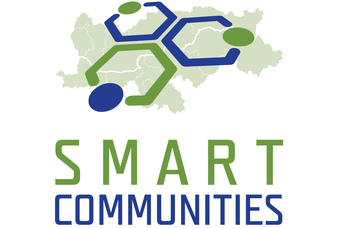Smart Communities 2.0 (Interreg)

Smart Communities 2.0 - How to be smart in the countryside?
Web page of the project: http://smartcommunities.eu/
The basic project concept is that ’smartness’ is not the privilege of cities; sustainable welfare could be also achieved in the countryside with the application of the newest technologies. For this end, we have to develop and connect local communities to the increasingly digitalised global world. Based on the results of our pre-project, we plan to complete two main activity groups, as (1) Smart Village cross-border services and (2) Smart Village know-how transfer.
Our main objective is to support the ’smartening’ process of rural settlements through the development of cross-border services. This is facilitated by the Smart Village Roadmap, that showcases the step-by-step process for villages to become smarter through specific actions. The Roadmap is based on a Good Practice Catalogue to be elaborated. Additionally, the Smart Database and Helpdesk service, as a one-stop-shop, provides all actual and relevant information in one place, thus, ensures matchmaking between villages, opportunities and competent consultants.
The newly developed services will form the basis of know-how transfer to villages: the main target groups are on one hand the local institutions (Smart Village Pilot Courses and Smart Academies), and on the other, local citizens (Mobile ICT Centre trainings, study tours in Local Bloom Movement and Local Development Hackathon).
As a final step, in order to measure and compare the development of villages, we plan to elaborate and introduce a new, motivating service in the form of a Smart Village Award, that is based on a Smart Village Indicator System to be programmed together by the Slovak and Hungarian partners. The coordinator is an experienced and well-embedded civil organisation that functions as a bridge towards the local settlements, while the consortium partner higher education institutions ensure the necessary knowledge and capacities on both sides of the border. The target area of the project is Nógrád county, Banska Bystrica and Kosice region.

